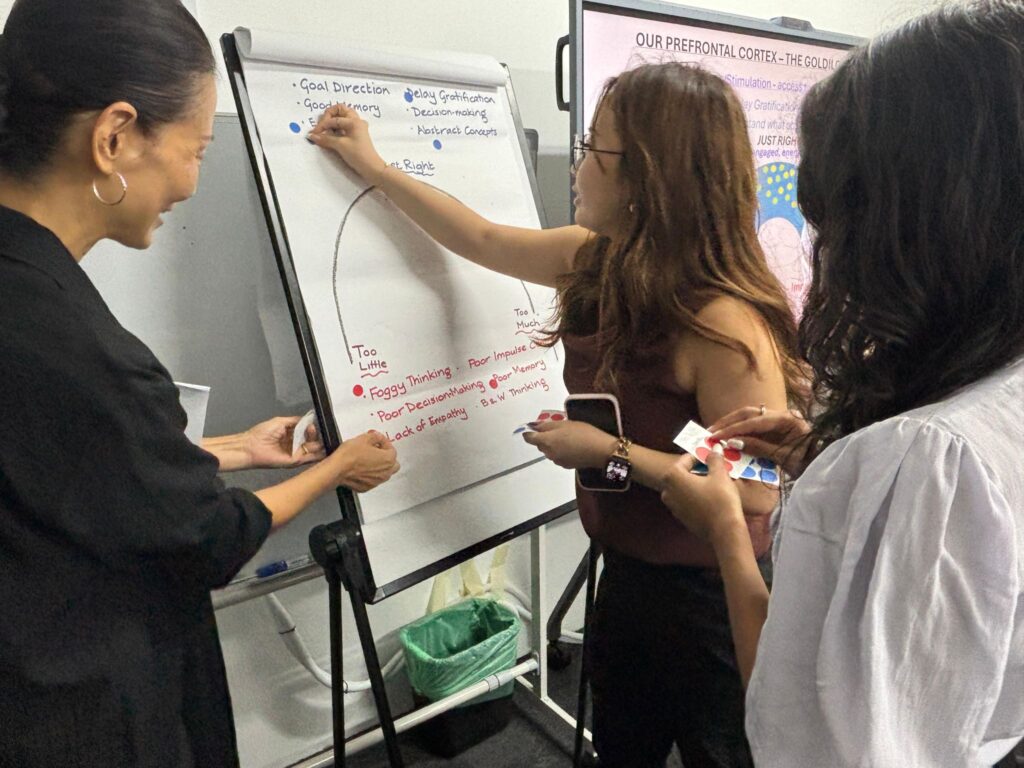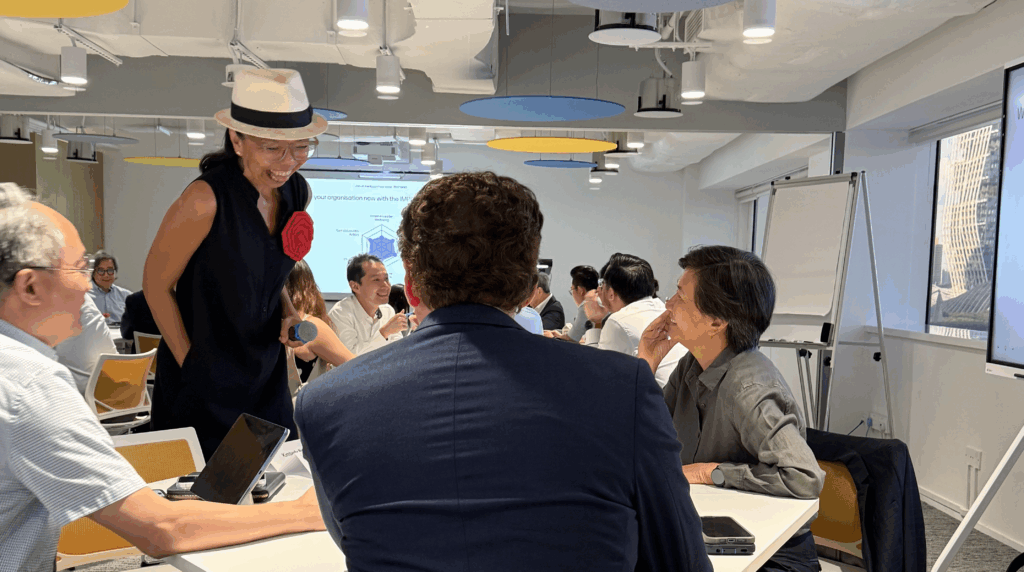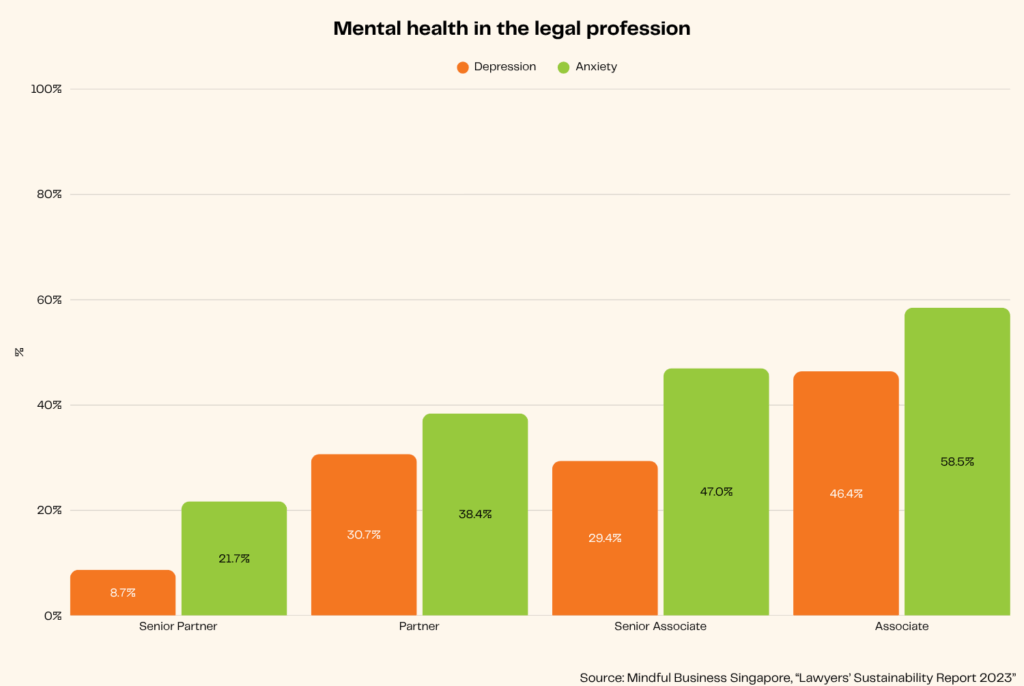Junior Lawyers Are Finding Their Voice

When Mr See Wern Hao (Omni Law LLC) walked into a conference room one recent Friday evening, he wasn’t expecting to hear just how much pressure some of his peers had piled on themselves. “Some juniors hold themselves to standards of near-perfection, or may feel uncomfortable sharing about their workload capacity with their senior colleagues or bosses,” says Wern Hao, who helped organise the peer-sharing session for junior lawyers.
The session was the brainchild of a group of young lawyers from the Law Society of Singapore’s Young Lawyers Committee that included Wern Hao, Ms Anthea Choong (Allen & Gledhill LLP), Ms Bernadette Loh (Chong Chia & Lim LLC), and Ms Shalini Kumar (Bird & Bird ATMD). What began as a small gathering turned into an unfiltered conversation about the relentless pressures many carry alone.
It was also a reminder that “junior lawyers” aren’t a uniform group. Still, common threads ran through their stories. Many spoke of unclear instructions from superiors or of being left to meet client deadlines that were never realistic to begin with. The result is a steady, simmering stress—one that few had ever put into words.
The conversation unfolded as the legal profession has begun a broader reckoning with its future. When Chief Justice Sundaresh Menon took to the stage at the Legal Profession Symposium in July, he urged lawyers to develop a shared vision for the future of their profession. Three months on, the profession has responded with vigour.
The Mindful Business Movement, a coalition of some 30 law firms and in-house teams, has developed its vision, which broadly aims to create healthier, more sustainable workplaces. Members believe this can be achieved by reducing unnecessary stress, accommodating different seasons of life, and reconnecting the profession with its purpose.
Articulating the vision is one thing but the real challenge is putting it into action, according to Mr Danny Quah (CHP Law LLC). “There is no magic to it. It is the deliberate taking of small, practical steps, on a daily basis, that results in positive change to the work lives of the individual lawyer, the law firm and the legal community as whole.”
“By being deliberate about reducing unnecessary stress and making work better, the ultimate goal is to increase productivity, reduce risk and make lawyers’ lives more sustainable in the long term,” says Danny, whose firm is part of the Mindful Business Movement—and who just happens to be a former mentor of Wern Hao.
Another member of the Mindful Business Movement is TKQP Law LLP. Ms Alcina Chew, a senior partner at the firm, attended the movement’s kick-off meeting in October, where attendees shared perspectives on how best to shape and champion wellbeing in the profession. “One important takeaway for me was that the single strongest driver of organisational wellbeing is the wellbeing of its leaders,” she explains. “I was initially surprised by this, but the more I thought about it, the more it made sense.”
“When I was a young(er) lawyer, I often looked up to my seniors and asked myself, ‘Do I want to be in their shoes one day?’ Leaders set the tone for the whole firm – when they show that it is possible to excel professionally and live well outside of work, that has a powerful ripple effect across the firm.”

Mental Wellbeing at the Core
Much of the dialogue about sustainable legal practice centres on mental wellbeing—and rightly so. Despite efforts to normalise and even champion it, gaps remain. A recent survey found that three in 10 lawyers in Singapore experienced depression, and four in 10 for anxiety. In private practice, these conditions disproportionately affect junior lawyers. The opposite is true for the in-house community.

“Surveys have reinforced that mental health concerns are continually rising, and is a real and pressing issue, especially among junior lawyers,” shares Anthea, who also helped lead the session for junior lawyers. “Mental health isn’t a ‘nice to have’—it’s a core part of professional sustainability. High performance and wellbeing are not mutually exclusive; in fact, they reinforce each other.”
Some may dismiss the survey findings as par for the course in the law, a notion that Bernadette rejects. “I encourage us to re-look at how we practise, so that we stop undermining our best talents in the name of ‘it has always been done this way’.”

Wern Hao agrees. “Ultimately, the sharing session only reinforced my belief that young
lawyers are not whiny or entitled, as some people may characterise them to be. They
only hope to be heard and understood by their peers and seniors. They advocate for a sustainable practice
precisely because they enjoy the work they do and want to keep doing good work.”
Alcina has
noticed similar attitudes in her team, which comprises 12 junior lawyers. “Young
lawyers today are engaged and thoughtful about the practice of law—they want to
be good at their work and develop and hone their craft, but rightfully recognise
that this should not come at the expense of their overall wellbeing. They care
about doing meaningful work which makes a positive impact.”
Embodying this, Shalini has a call to action
for the profession: “Supporting the wellbeing of lawyers is not a passive
concept that gets spoken to us about but it is a co-creating and
action-oriented one that we each have a responsibility to work on if we truly
want the legal ecosystem we are all a part of to become healthier and more
sustainable.”

